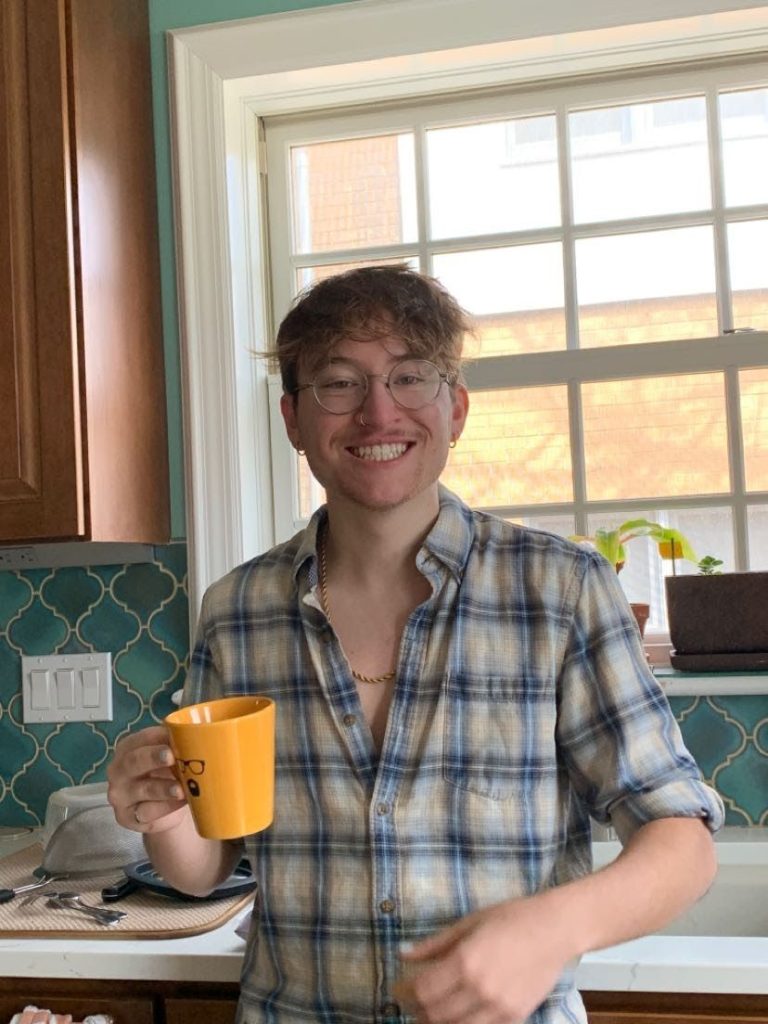 We recently had the chance to sit down and get to know CommUnity’s new Youth Mobile Crisis Counselor, Gabe Bullock. Keep reading to learn more about what Gabe’s role with Mobile Crisis Response looks like and what he’s looking forward to!
We recently had the chance to sit down and get to know CommUnity’s new Youth Mobile Crisis Counselor, Gabe Bullock. Keep reading to learn more about what Gabe’s role with Mobile Crisis Response looks like and what he’s looking forward to!
Q: Tell me a bit about yourself.
A: I’m a recent UI graduate with a degree in social work, and I’ve been working in mental health at CommUnity for almost two years. I love working in mental health, and I have a passion for advocacy!
Q: Tell me a bit about your time at CommUnity.
A: I started as a practicum intern, but transitioned into Mobile Crisis quickly after graduating. I worked on the phone lines for a bit before moving to GuideLink, where I was a Triage Counselor full time. I loved being at GuideLink, and the work was challenging. I’ve gained a lot of high-intensity hands-on experience that I’m carrying into working with the young people in the community.
Q: What are you most excited about in your new role as a Youth Mobile Crisis Counselor?
A: Learning more! I have a lot to learn about youth mental health, and a lot to learn about crisis work. The young clients I’ve seen have had nuanced, intricate crises that don’t often get the care or serious attention they deserve. I’m excited to support (and learn how to better support) those clients.
Q: How is training going?
A: It’s going well! I’ve met some incredible people in the community, both students and staff. I already have crisis de-escalation and risk assessment training, so much of my training has really been building inroads with the community.
Q: When will you begin responding to school calls?
A: Soon, hopefully. I’m already shadowing with Parth [Youth Mobile Crisis Coordinator], and I still have more to learn from shadowing. I may be responding to calls solo within a month, but maybe longer. I’m ready to get out there, but I’m in no rush to skip the fundamentals.
Q: If you could tell school staff and administrators one thing about mobile crisis, what would you want them to know?
A: Mobile Crisis is versatile! I want more people to know that MCR can be used to mediate difficult conversations, to counsel grief, as well as to respond to imminent crises. Parents can talk to MCR about conflict with their youth, or meet with us to discuss safety plans. We’ll never be able to provide the continuity of traditional therapy, but I’d love to see MCR being utilized for a wider variety of care.
Q: If you could tell students one thing about mobile crisis, what would you tell them?
A: Similar to what I’d tell staff or administrators I’d urge youth to use MCR as a reinforcement to their support network. MCR can operate as a de-escalation safety net, but I’d always like to see fewer crises get to that point.
Q: Is there anything else you would like to let people know?
A: The team at CommUnity has their heads in the right place. Our work fulfills us, and we love providing the support. I’d like to let people know that when they reach out to MCR they’re going to be seen by an experienced professional, but also a real person who really wants the best for them.
If you or someone you know is experiencing a mental health crisis, please don’t hesitate to reach out for help. Text or call 988 or chat online at 988lifeline.org/chat to connect with a counselor immediately. To have mobile crisis counselors dispatched to your location, call the Your Life Iowa line at 855-581-8111 and ask for mobile crisis.